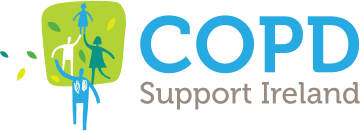Smoking cessation is the first line of treatment for COPD
There are various types of medication that may be prescribed to treat COPD. Some of these include:
- Bronchodilators
- Corticosteroids
- Antibiotics
- Oxygen therapy
- Vaccinations
- Expectorants
Your medication may be taken in different ways. In order for the medication to work properly, you must take them as instructed, even when you are feeling better.
Bronchodilators help to relax and open your airways making it easier to breath. Bronchodilators are either short acting or long acting.
Combination inhalers contain both a reliever and a corticosteroid preventer. The action of the reliever is to keep the airways open, providing relief. The action of the corticosteroid preventer is to reduce inflammation in the lungs.
Oral Corticosteroids are high dose anti-inflammatories and can be used during a flare up for a short period of time. Occasionally some patients require a low maintenance dose.
Antibiotics are used to treat infections caused by bacteria.
Theophyllines are used in some patients who may require further bronchodilation (opening of the airways).
Pulmonary Rehabilitation is a multidisciplinary programme which involves doctors, nurses, physiotherapists, dieticians, occupational therapists, social workers and clinical psychologists. The programme covers exercise training, nutritional advice, education about your condition and offers counselling.
Breathing Exercises are a key element in controlling the breathlessness associated with COPD. A physiotherapist will introduce you to breathing exercises. Pursed Lip Breathing works when you find it hard to breath. You can learn this now so you will not panic when you feel short of breath. Check out these videos to see some of the exercises performed, and how beneficial it is!
Vaccinations prevent lung infection from viruses and bacteria.
Expectorants can be used for patients who have excessive production of mucus, however not all patients benefit from this medication.
